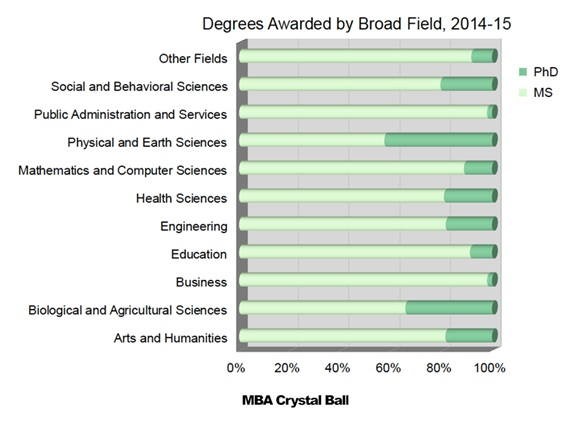
The Career Outlook For Doctor Of Education Graduates
Research reveals that careers in the education sector and training are projected to add 658,200 new jobs from 2021-2031 which represents 7% of job growth in the field.
An integrated master's degree and a professional doctorate in education can lead up to numerous career paths and open up a world of opportunities for individuals who want to pursue a career in the education sector. These advanced degree programs are designed to equip working professionals with the knowledge and skills necessary to become experts in their field and to help them stand out in the competitive market.
Read on to explore some of the careers for Doctor of Education graduates available to individuals who are looking to cash in opportunities in the education sector.
7 Careers You Can Pursue After Completing a Professional Doctorate In Education

Here is a list of career options available for you after attaining an integrated masters and doctorate qualification:
- Educational Positions
One of the most obvious career paths for individuals with advanced degrees in education is to seek educational positions. However, with an integrated master's and professional doctorate, you can apply for more specialized and high-level educational positions. For example, if you graduate with a degree on professional doctorate in education you may be qualified to become a college or university-level professor or teach in a specialized field such as special education or STEM.
You can also be instructors, lecturers, associate or assistant professors, or postsecondary teachers who work at college or university levels. Based on your tenure track and area of expertise your salary can vary from $49,510 as an instructor to $87,018 as a professor.
- Administrative Positions
If you are someone with advanced degrees in education you may also be well-suited for administrative positions in schools or school districts. With a master's or doctorate in education, individuals may be qualified to work as a K-12 principal, school superintendent, college dean, or higher education administrator. These positions often come with a higher salary and more opportunities for leadership and decision-making.
As a school principal, you can expect to earn around $81,095 for elementary, $87,989 for Middle, and $92,197 for high school. As a school superintendent, you can expect to earn anywhere around $116,931 depending on your previous work experience.
- Curriculum Developer
Curriculum development positions often require advanced knowledge of teaching and learning, as well as experience in research and analysis. You can work at colleges or universities and help develop course curricula or instruct students in a specific area and assess their progress.
Individuals with advanced degrees in education may also be qualified to work in curriculum development. This can involve working for a school district to develop curriculum standards or working for a textbook publisher to develop instructional materials. The median salary for curriculum developers is approximately $58,583 per annum.
- Education Researcher
As education research, you can work at a university or research organization. Depending on your interest you can involve yourself in a variety of roles. This can involve researching teaching and learning, evaluating the effectiveness of educational programs, or analyzing data to inform policy decisions.
You can also oversee faculty and collaborate with them to develop a strategy for creating short and long-term research initiatives. You can often work to oversee the research budget, secure research funding and establish key industry partnerships. Research positions may be available in academic institutions, government agencies, or non-profit organizations and you can earn around $90,339 annually.
- Consultant
You can work as provost or vice president and help the deans and departmental heads determine their institution's goals and priorities. This can involve working with schools or school districts to develop new programs or improve existing ones, providing training and professional development for teachers, or evaluating the effectiveness of educational programs.
You can work for a consulting or as an independent contractor helping schools improve their curriculum. Consulting positions can also be found in private companies or non-profit organizations and you can expect to earn around $148,783 per year.
- Policy Developer
Policy positions often require a strong understanding of education research and the ability to work with stakeholders to develop effective solutions. This can involve working for government agencies or non-profit organizations to develop and implement education policies at the local, state, or national level.
Since you will typically be bringing a background in educational leadership and businesses such executive roles offer a handsome salary of around $152,225 annually.
- Non-Profit Work And Entrepreneur
Finally, you may be interested in starting your educational business. This can involve starting a tutoring service, developing an educational app, or starting a non-profit organization. Entrepreneurial positions can be challenging, but they also offer the potential for flexibility and creative freedom.
Individuals with advanced degrees in education may also be interested in pursuing careers in non-profit organizations. Non-profit organizations often focus on providing educational opportunities to underserved communities and may work on issues such as literacy, access to technology, or college readiness.
Ready To Start Your Journey?
With a Professional Doctorate in Education, you are not only advancing your education but are also taking your career to a better place. Having a thorough understanding of the career paths with this degree will allow you to find the right opportunity and reach your career and financial goals. With this course, you can make a difference in the lives of children, organizations, and communities thereby transforming your problem of practice into a plan of action.

